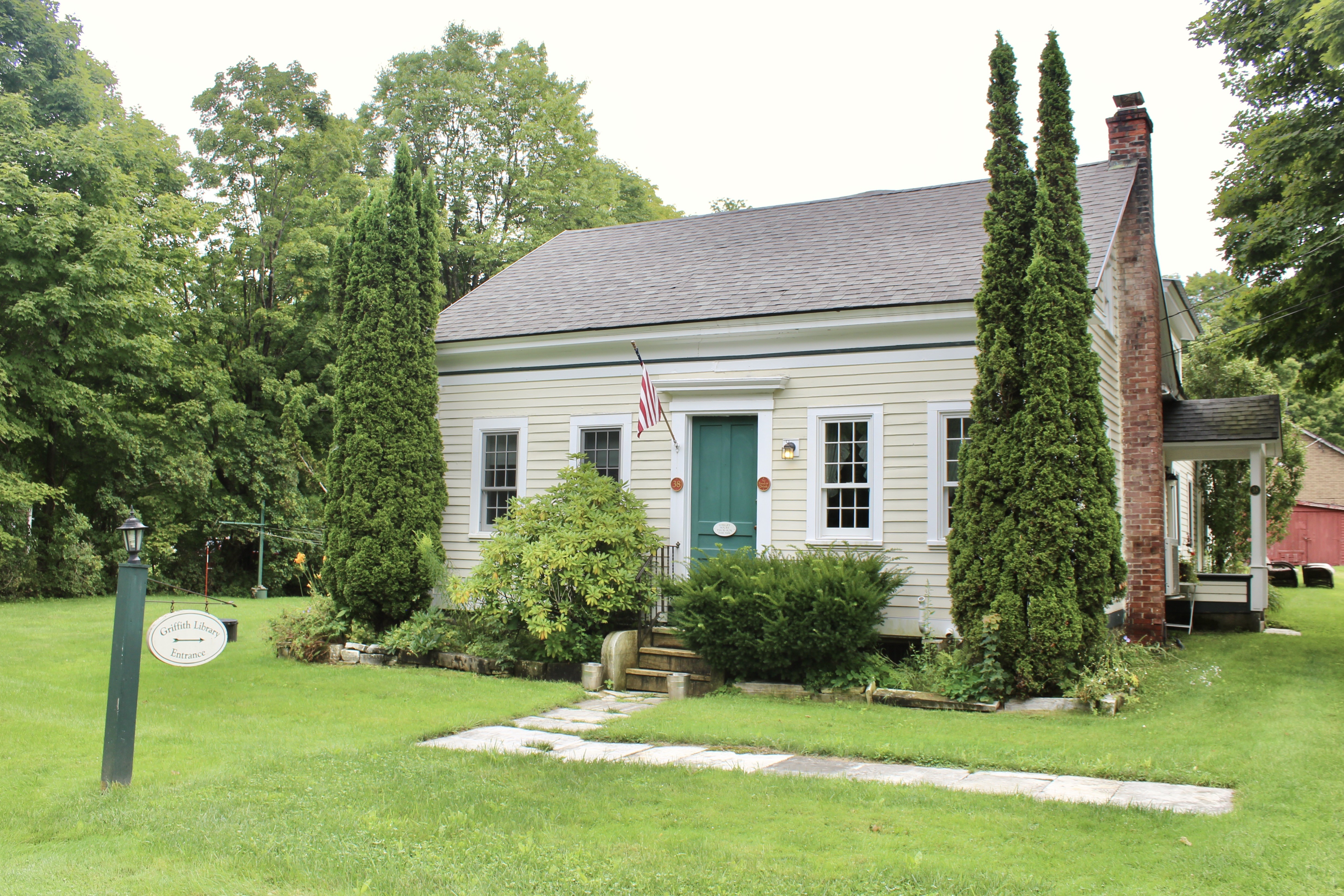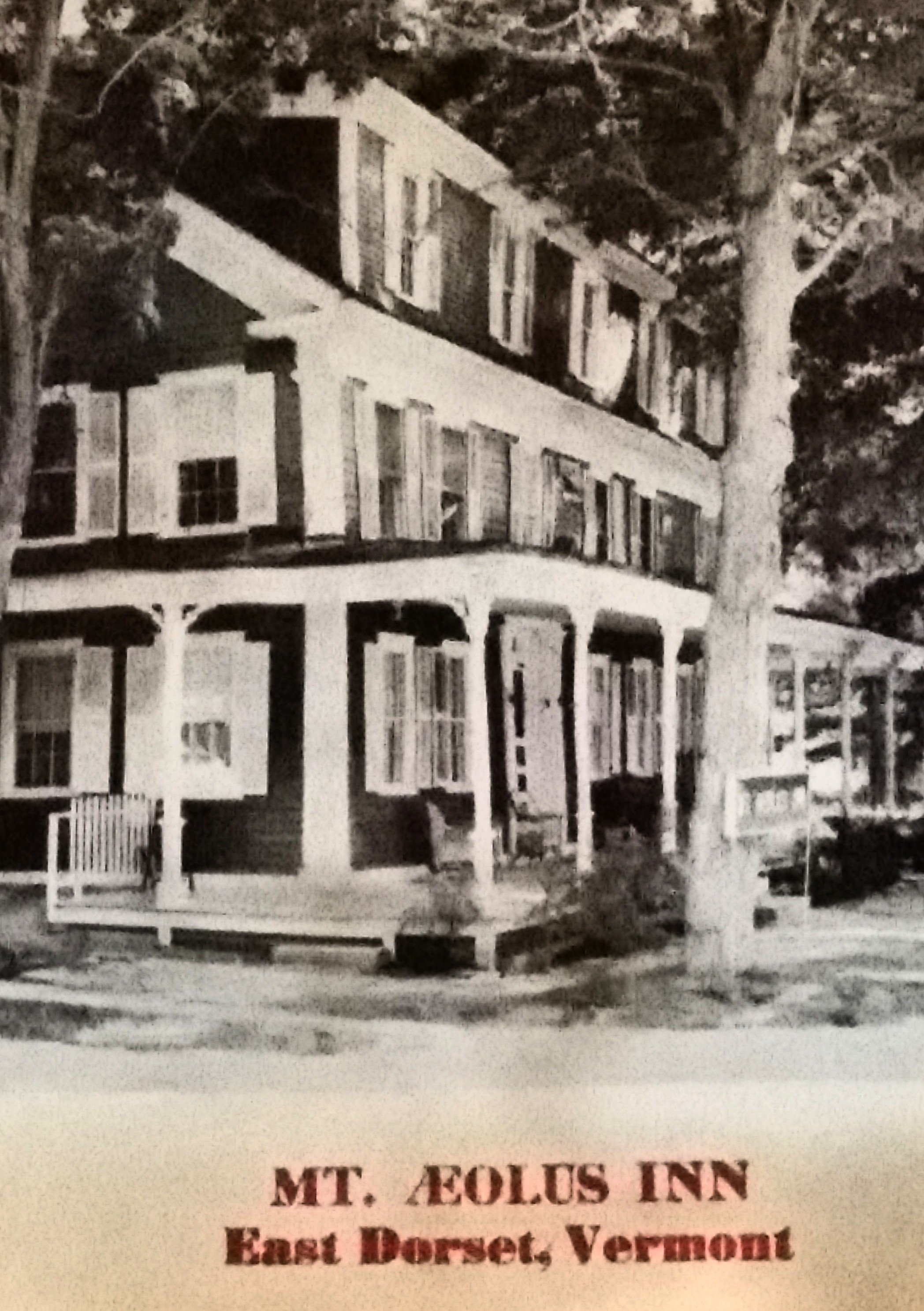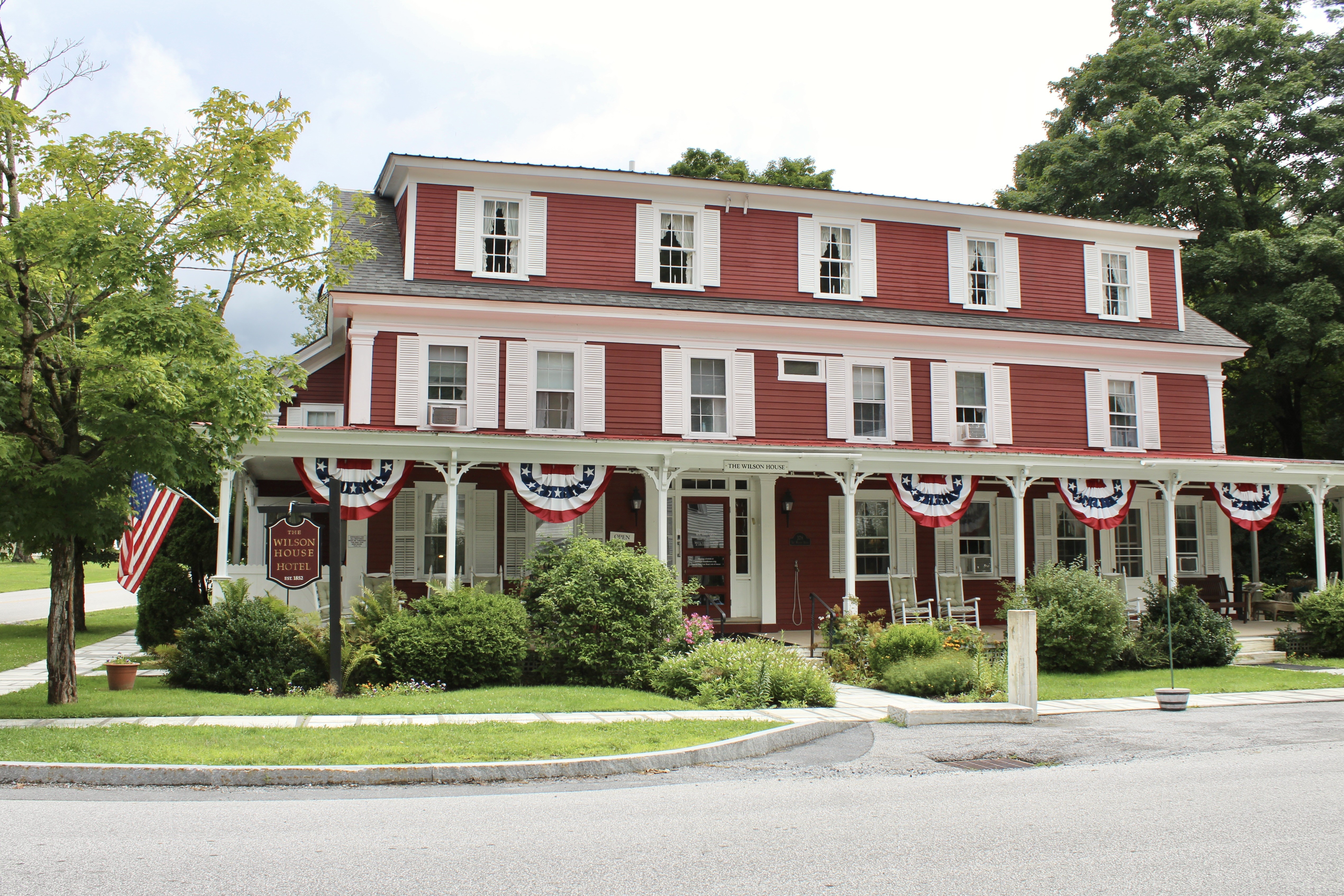
History
The Legacy of Bill W.:
Co-Founder of Alcoholics Anonymous
As the co-founder of Alcoholics Anonymous, Bill Wilson was named by Time Magazine one of the 100 most influential people of the 20th century. In creating the 12-Step program, Bill has been instrumental in literally saving the lives of millions of people across the globe and created a transformative, universal support system for those in recovery. Aldous Huxley called him the greatest social architect of our time. The legacies of both him and Dr. Bob continues to do the same in the 21st century.

Bill W.’s Early Life
Birth & childhood in East Dorset
Bill’s story starts with his birth in East Dorset on November 26, 1895, in the Wilson House, his paternal grandparents’ hotel in East Dorset, Vermont. He lived nearby for the first five years of his life. The family then moved to Rutland, Vermont, until his parent’s divorce in 1906.
That same year, his father left for the granite quarries in Vancouver, British Columbia, his mother enrolled in school in Boston to train as an osteopath. She left Bill and his younger sister Dorothy with her parents, Ella and Fayette Griffith, in their East Dorset home across the churchyard from the Wilson House. His grandparents’ home, with Bill’s bedroom on the second floor, is part of the Wilson House property and open to the public.
Adolescence in East Dorset
Bill spent a happy childhood and adolescence in and around East Dorset. He hunted small game, fished the famous Battenkill river, the nearby brooks and streams and at nearby Emerald Lake. Here, he learned to carve and throw a boomerang, play the violin and sharpen his aim with a baseball. His grandparents had the means to send him and his sister to the then-private high school, Burr and Burton Seminary, a few miles away in Manchester.
The impact of early experiences
He was the 1913 class president, captain of the baseball team and played first violin in the school orchestra. From this, one can perhaps gain an early glimpse of Bill’s drive to be the best. During his senior year, following the death of Bertha Bamford, a classmate and promising young woman with whom he was in love, he suffered his first bout with severe depression. All his work went to the sidelines and he nearly failed out of school. While nobody could foresee what was to come, Bill Wilson went on to become one of the most consequential students ever to attend Burr and Burton.
Bill W.’s Connection to East Dorset
College years & beyond
When Bill attended Norwich University in Northfield, Vermont, he frequently returned home to spend time with his grandparents. His visits with the Griffith’s continued until his grandfather’s death in 1924. He and his wife Lois, who had her own connections to the area, visited for extended periods of time every year until he was too sick to travel by the late 1960s. This was home.
The final resting place
When Bill died in 1971, he was buried in East Dorset. Today, East Dorset remains the small town of Bill’s childhood. The main street still contains most of the tidy colonial homes he walked among for so many years. Stately Burr and Burton Academy, nearing its two-hundredth year of operations, and where Bill spent four formative years, is a stop for any visit. Emerald Lake, where Lois’s parents owned a summer cottage, is a beautiful Vermont State Park.
The East Dorset Cemetery is where Bill, Lois, his mother, father, sister, brother-in-law Dr. Leonard Strong, grandparents, great grandparents, and great-great grandparents on both the Wilson and Griffith sides of the family rest. The cemetery is just one mile south of the Wilson House, and a pilgrimage for visitors.
Bill Wilson’s spirit remains at the Wilson House, where he was born, where his work continues, and which remains at the heart of the town he never really left. Just as the Wilson House gave birth to Bill W, it remains a life-giving refuge for those in recovery. You will feel welcome, and leave enriched by the experience of your visit.

The Historical Significance of the Wilson House
Construction & early years
Constructed in 1852 for Ira Cochran (1810-94), a locally prominent entrepreneur, the hotel that later became known as the Wilson House was the first motel in the village of East Dorset. The construction of the hotel occurred during the same year that the Western Vermont Railroad came through the village, traversing the southwest quadrant of the state between Rutland and Bennington, connecting those towns to interstate lines.
Sitting on a site across the street from the depot, the newly constructed hotel was in a prime location to reap the rewards that the new railroad would bring to the area. The building itself, however, was already outdated in design while it was being built, featuring an eaves-front orientation that was more typical of the early 19th century Greek Revival style, rather than the Italianate architectural features that had already taken hold, particularly in larger towns and cities.
An inset map of East Dorset village appears on the Bennington County map published by Rice and Harwood in 1856. The hotel is identified as simply the East Dorset Hotel without specific ownership. The opening of the railroad led to great expansion of the local marble industry, which Ira Cochran was directly involved with, as he had developed a steam-powered marble sawing mill at East Dorset around the same time as the hotel.
Ownership transitions & renaming
The next proprietor of the hotel was Blake Barrows, who seemingly gained ownership partially through his marriage to Ira Cochran’s daughter, Betsey. The following change of ownership also involved marriage, and brought the Wilson name to the hotel.
William C. Wilson (Bill’s namesake) married Helen, daughter of Blake and Betsey Barrows and acquired “one equal and undivided half” of the hotel property, paying $3,000. The hotel was then renamed to Wilson House in 1877. In 1895, Gilman Barrows Wilson, son of William and Helen, and his wife, Emily Griffith Wilson, while living in Wilson House, gave birth to a son in the present north parlor, “in a room in back of the old bar” as Bill would describe it later in life: The man who would “relate the building to an international social movement”, William Griffith Wilson (later known as Bill W.). After a few years his parents moved first into a nearby house and then to Rutland, Vermont.
The hotel during the 20th century
In 1899 the hotel was sold to Gilman Barrows Wilson, though he only held ownership for one year before transferring ownership of the property to a trustee. The title to the building was then reverted to a Manchester bank in 1900, later being bought by William Leary of Dorset in 1907. He retained ownership until 1920, then Stella and Thomas Ambrose, a grandson of Blake Barrows, acquired the property and renamed the hotel, the Mt. Aeolus Inn, a name that would persist for more than half a century. In late 1925 John and Florence Cunningham purchased the property from the bank, and operated the hotel for the following 21 years, until 1946.

The Birth of Alcoholics Anonymous
Bill Wilson & Robert Smith form a recovery group
The end of Prohibition enabled the Cunninghams to (re)open a bar in the hotel in 1933. Wilson, by the mid 1930s, was beginning his recovery from the alcoholism that had nearly destroyed his career and marriage during the 1920s and early 30s.
In 1935, he happened to meet in Akron, Ohio another native Vermonter and alcoholic, Dr. Robert Smith. Both members of the Oxford Group, Wilson and Smith subsequently formed a group specifically devoted to the disease of alcoholism, Alcoholics Anonymous. Reflecting the basic tenet of anonymity to encourage participation, the founders became known as Bill W. and Dr. Bob. Bill W. conceived the Twelve Steps to guide recovery from alcoholism, and wrote the basic text, Alcoholics Anonymous, published originally in 1939. The Library of Congress named it one of the 88 books that shaped America and has been printed over 40 million times and translated into 70 different languages.
After the death of Dr. Bob in 1950, Bill W. became the paramount figure in the movement. A.A. subsequently burgeoned into an international movement with millions of participants. Bill W. died on January 24, 1971, and was buried near his birthplace, East Dorset, in the cemetery south of the village.
Recognition of Bill Wilson’s birthplace
The last owners under the Mt. Aeolus, Henry and Mary Holden, operated the hotel for 29 years. The continued development of tourism in Manchester, the discontinuation of passenger trains through the village and the moving of the main highway to bypass the village all led to the decline of the property. The physical condition of the property deteriorated, and it was only the link to Bill W. that ultimately spared the building the fate of demolition, as many other modest hotels in small villages throughout Vermont had experienced.
The Restoration & Revival of the Wilson House
Preservation efforts
In late 1986, Albert (“Ozzie”) Lepper, a friend of the A.A. movement, discovered the deteriorating hotel, and then purchased it from Henry Holden in early 1987. Mr. Lepper was inspired to restore the hotel’s physical condition and reopen it as a tribute to Bill W. and a place of respite for those in recovery to give thanks for their new lives, which was Ozzie’s mantra.
The rehabilitation project began in 1987. The east block was in the worst condition; it required extensive structural and cosmetic repairs including the excavation of a partial basement, the construction of a new foundation, and the restoration of the first-floor kitchen and six second-floor guest rooms using existing materials wherever possible.
The main block received equally thorough treatment; the bar was removed from the north room and it became the parlor, complementing the dining room and library on the main floor and the seven guest rooms plus bathrooms on the second floor. The exterior painting of the hotel in 1994 marked the virtual completion of the physical rehabilitation.
The reopening & current use
The hotel was reopened in 1988 under the historic name of the Wilson House. A non-profit foundation has been created to own the property, and volunteers serve to operate the hotel. Reflecting the guiding philosophy of the hotel’s management, A.A. and 12-Step related meetings are held regularly in the former livery that has been adapted to meeting and lounge space.

The Wilson House: A Living Legacy
Nevertheless, guests from throughout the United States and other countries find their way to Bill W.’s birthplace. Nearly one and one-half centuries after its original opening, the East Dorset hotel has been restored both in physical condition and in its historic function as a small village hotel. The latter status confers on the Wilson House special significance in Vermont as dwindling numbers of its type survive and continue in their original use.
The Wilson House, therefore, constitutes an outstanding representative of the modest hotels that flourished in Vermont villages during the latter 19th- and early 20th-century period when railroads provided the dominant means of passenger travel for business, pleasure, and recreation.
